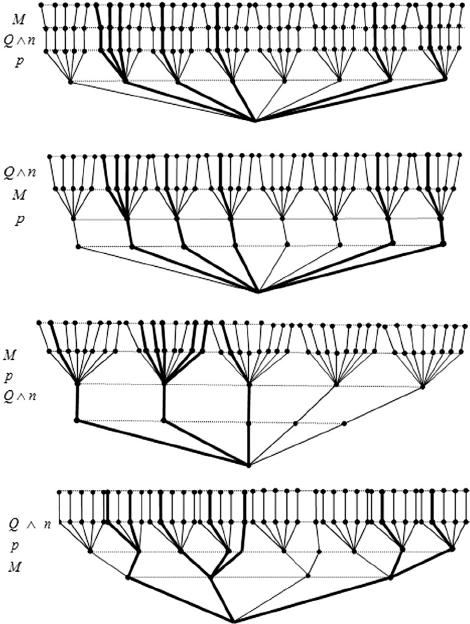 While reading Phi Kappa Phi’s patterns themed Winter 2015 Forum, I thought about patterns of my own life. Specifically, I thought about how I develop patterns around my neophobia (neophobia, is the aversion, fear [phobia] of the unfamiliar, new [neo]). It is important to consider that patterns have an origin even if it is conceptually difficult to ponder at times. Some patterns are only identifiable when large data sets are analyzed, but most of those data sets still begin with one data point and expand from there.
While reading Phi Kappa Phi’s patterns themed Winter 2015 Forum, I thought about patterns of my own life. Specifically, I thought about how I develop patterns around my neophobia (neophobia, is the aversion, fear [phobia] of the unfamiliar, new [neo]). It is important to consider that patterns have an origin even if it is conceptually difficult to ponder at times. Some patterns are only identifiable when large data sets are analyzed, but most of those data sets still begin with one data point and expand from there.
I also thought about how I develop patterns related to my being an introvert. One way to think about introverts is that some environments with a lot of stimuli make it difficult to become comfortable. Consider rush hour traffic or crowded public transportation: if it is a new experience and it proves uncomfortable, I would consider not doing it a second time but rather leaving earlier or waiting longer to leave which as it turns out is a lot more comfortable for me!
If we take it to be true that we can’t avoid new experiences, the system can be modeled with a simple logic tree. Beginning with a generic new action, a simple model would have two outcomes: the action is comfortable or the action is uncomfortable. If it is comfortable, then the action has the potential to become a pattern if the action is repeatable and repeated. If it is uncomfortable, then the action has a difficult path to become a pattern (if it is a repeating non-negotiable action that is uncomfortable, it is still not negotiable).
Initially when thinking about patterns in my life, I thought about my present habit to stream movies available online. This unfortunate habit is a pattern because it occurs most days, but especially weekends. It shouldn’t come as a surprise given it is an activity I can do in the familiar and unadorned space I call my room.
On the face of my pattern to watch movies, there seems to be nothing wrong. When considering the opportunity costs, my inner Thomas Jefferson would urge me to read non-fiction books and work on homework/class readings to be more productive. Assuming it is not feasible to change what I find comfortable and uncomfortable (meaning I can’t make it so I find it uncomfortable to watch movies), one alternative is to limit what new actions I take.
By adding a feed forward control that is easier to describe than implement, it is conceptually possible to limit what new actions I take. A present, I would describe a feed forward in this situation as a pre-screening of new actions. In practice it would work as a new logic branch – before the comfortable/uncomfortable branch – asking, “does this action add to my knowledge or does this action not add to my knowledge?” where “adds” means the actions should be taken and “not adds” means the actions should not be taken. When I remember to ask a pre-screening question, early results are positive: moving away from movie watching and toward productive activities such as cleaning rooms and organizing furniture. The real test will be whether I will use the above feed forward control when I have an opportunity learn something new and/or to get ahead in classwork or whether I need to add a further feed forward control to implement the above control.
For those that are neophilic and extroverted or a different combination of neophobic, neophilic, introverted and extroverted, the principles of a logic tree can still apply. Considering the omnivores dilemma, a neophilic (who has a fondness, liking [philia] for difference, new [neo]) may risk the consequences associated with the new to gain the advantages associated with the new. The omnivores dilemma for a neophobic my risk the benefits associated with the new to limit the disadvantages associated with the new. An extroverted individual may thrive where there is a lot of stimuli in the environment and benefit from interacting with interesting people an introvert may never meet. But an introverted individual may excel in select situations free from external distraction where attention to detail is important and an extrovert may not consider might reduce outcome effectiveness.



